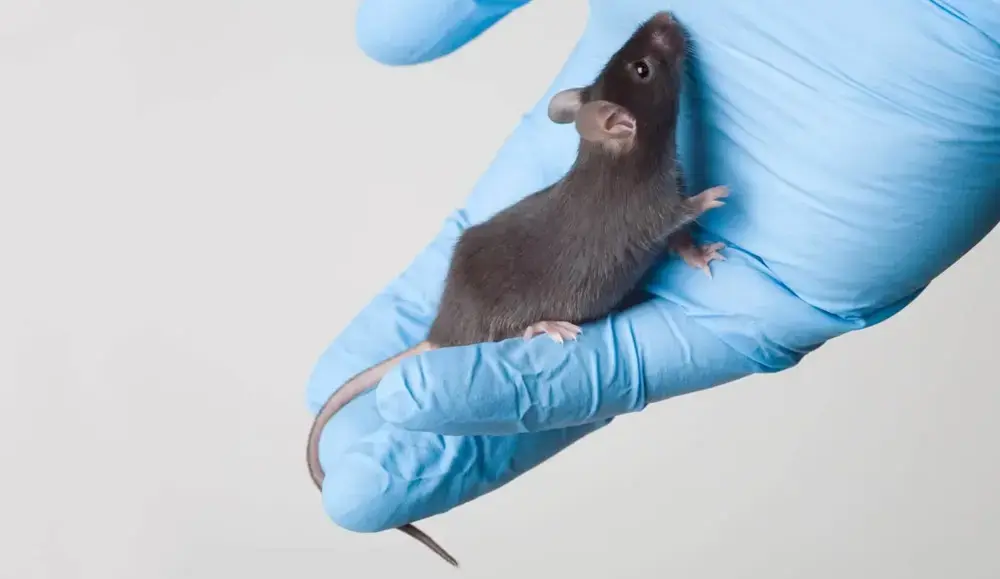Scientists create a mouse with human immunity
- July 7, 2024
- 0
“Mice are not people,” biologists like to repeat, emphasizing the difficulty of translating experimental results from rodents to humans. The authors of the new study overcame the problem
“Mice are not people,” biologists like to repeat, emphasizing the difficulty of translating experimental results from rodents to humans. The authors of the new study overcame the problem

“Mice are not people,” biologists like to repeat, emphasizing the difficulty of translating experimental results from rodents to humans. The authors of the new study overcame the problem to some extent by creating a modified line of TruHuX (or “truly humanized”) mice. These animals have a full-fledged human immune system and the same gut microbiome.
Mice and, to a lesser extent, rats are the most important animal models used to study the development of human diseases and their treatment methods. Small rodents are particularly suitable: they are unpretentious, grow and reproduce rapidly, and are very close to biochemical and cellular processes. In addition, it is easy to make mice transgenic, that is, to introduce into them a DNA gene that encodes human proteins. Including pathological, that is, those that cause certain diseases.
With immunity, it’s a bit more difficult. While rodent immune systems are broadly similar to ours, there are significant differences because the ancestors of humans and mice evolved independently over tens of millions of years. So the set of about 1,600 mouse genes that are now responsible for responses to infections and immune pathologies is very different.
How are human immunity and diseases studied in mice? For this purpose, rodents are humanized, that is, made human. Similar experiments were started at the beginning of the HIV epidemic in the 1980s and are still actively conducted.
First, the mice’s own immune system is destroyed, which leads to immunodeficiency, which “clears” a place for human components of the immune system. Then the animals are injected with human cells (mature lymphocytes in the blood, hematopoietic stem cells or some other cells). Such a humanized mouse reproduces only certain components of immunity, is not able to give a full-fledged protective response and lives for a short time. Such models are not very suitable for studying many diseases, developing immunotherapy methods for real patients and producing vaccines. An important step forward in the “humanization” of animals was an article written by American scientists in a journal. Nature ImmunologyBiologists have created a new line of mice that they call “truly humanized” (TruHuX, from the English word for real human).
The mutant line of NSG W41 mice, which lack a fully-fledged immune system, was used as the basis. Human stem cells isolated from umbilical cord blood were injected into their hearts (or rather, the left ventricle). A few weeks later, the mice were exposed to 17b-estradiol (E2), the most active and abundant form of the female sex hormone. It is present in both males and females.
The fact is that this estrogen, in addition to participating in reproduction and the formation of sexual characteristics, also affects the immune system. It stimulates the survival of human stem cells, the differentiation of B lymphocytes, and the production of antibodies against viruses and bacteria.
The TruHuX (or THX) mice obtained after this treatment also have a fully-fledged immune system composed of human cells. It includes lymph nodes, germinal centers, thymus epithelial cells, T and B lymphocytes including memory B cells, as well as plasma cells that produce highly specific antibodies and autoantibodies.
The authors showed that the modified mice were able to mount a strong immune response due to antibodies against bacterial proteins. Salmonella typhimurium (the causative agent of salmonellosis) and SARS-CoV-2 coronavirus. For this, animals were given clinically available vaccines that are administered to humans. Systemic lupus erythematosus, a serious autoimmune disease, was induced in other TruHuX mice by injecting them with a specific toxin (pristane). In addition, rodents have a “human” gut microbiome that is important for both immune function and other biological processes.
These results could take immune research to a new level and even contribute to the creation of new effective drugs. Perhaps TruHuX mice and similar ones will make it possible to move away from very expensive and ethically challenging immunological and microbiological studies in great apes.
Source: Port Altele
As an experienced journalist and author, Mary has been reporting on the latest news and trends for over 5 years. With a passion for uncovering the stories behind the headlines, Mary has earned a reputation as a trusted voice in the world of journalism. Her writing style is insightful, engaging and thought-provoking, as she takes a deep dive into the most pressing issues of our time.